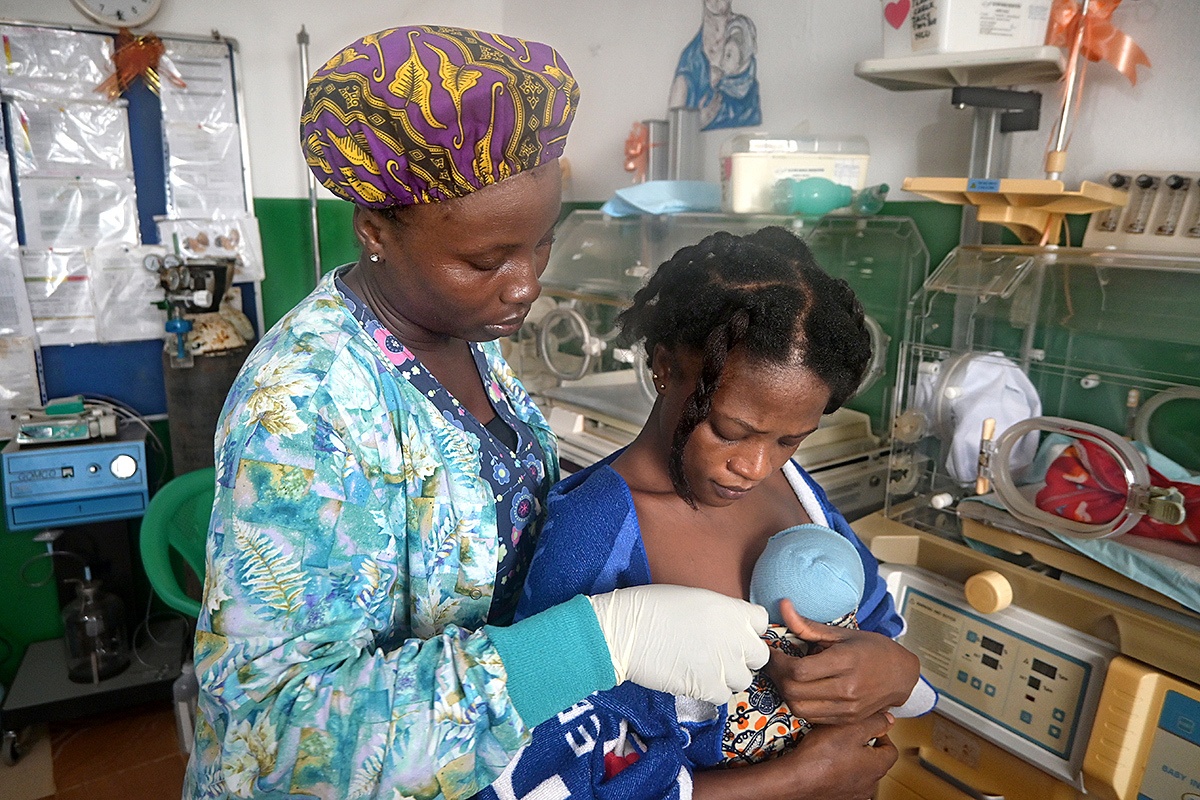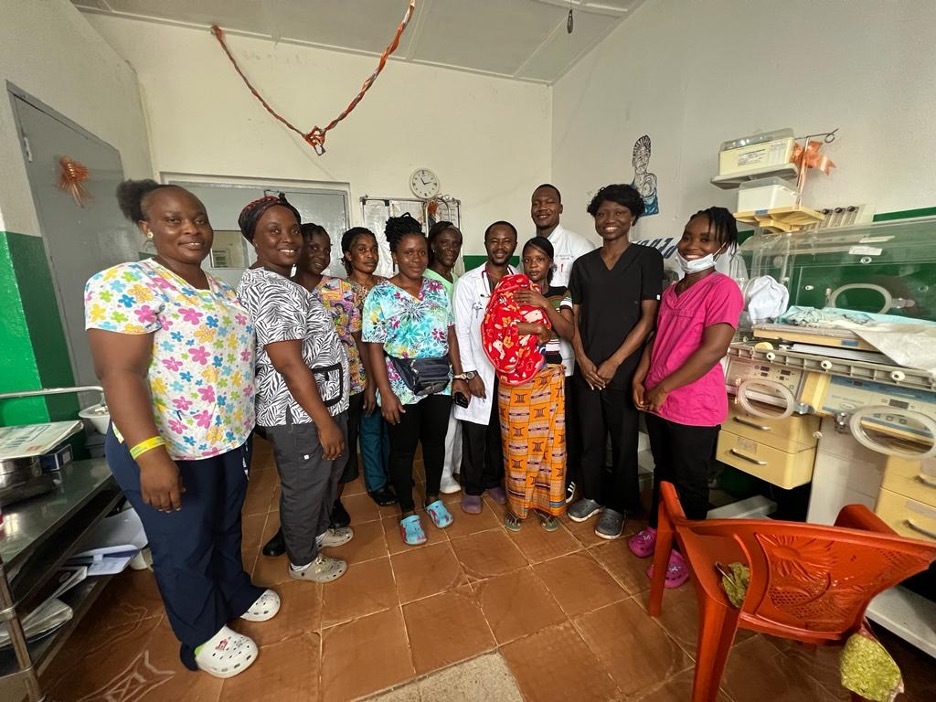Preterm Baby Receives Lifesaving Care at PIH-Supported Hospital
‘Kangaroo’ care and intensive intervention allows low birthweight baby to thrive
Posted on Oct 30, 2023

When Linda Depoyou, a 27-year-old mother of three, gave birth to her fourth child in July, he weighed only .6 kilograms, or 1.3 pounds. So, Depoyou and her newborn, Godsent Yeoh, were immediately transferred to the neonatal intensive care unit (NICU) at Partners In Health-supported James Jenkins (J.J.) Dossen Memorial Hospital in Maryland County.
Depoyou, who lives in neighboring River Gee County, suffered from malnutrition, with very little milk to feed the baby. She was enrolled in PIH’s social support program and fed hot daily meals throughout her nearly three months of stay at J.J. Dossen Hospital.
Alongside other mothers with newborns in the NICU, Depoyou was introduced to the kangaroo mother care (KMC) approach. KMC is a well-known practice that clinicians around the world use to decrease the deaths of premature newborns, especially in countries like Liberia where incubators and reliable electricity are hard to come by. The practice involves the mother holding her baby to her bare chest to ensure direct, skin-to-skin contact.
Garmai Forkpah, PIH’s senior clinical mentor, says the NICU received 12 preterm babies from July to August 2023, and they all have been introduced to the KMC approach.
“In Liberia, it’s very unlikely for premature babies, especially like Linda’s, to survive without intensive care as the one given to baby Godsent,” Garmai said.
PIH began providing community-based KMC at J.J. Dossen Hospital and the communities it serves in Maryland in August 2018, with nurses providing care and follow-up directly in new mothers' homes. Infants at the hospital are eligible for KMC if they have a birth weight of less than 1.8 kilograms (about 4 pounds).
A study on Liberia’s Profile of Preterm and Low Birth Weight Prevention and Care shows that 22,000 babies are born prematurely each year and 1,100 children under five die due to direct preterm complications in Liberia.
Depoyou says that she “felt very bad” and was worried when her baby was born so small and at such a low weight. The baby ended up spending three months in the NICU, before Depoyou could bring him home to Glaro Freetown, where they live with her fiancé, Romeo Yeoh.
“I am very happy that my wife and baby are going home with me today,” said Yeoh, who works as a cocoa farmer in River Gee County, earning the equivalent of about $384 annually. “I want to say thank you to all the hospital people (nurses, doctors, and other healthcare workers) for taking care of my family.”
Dr. Mulbah G. Smith is an intern pediatrician who has been providing care for Linda and other preterm babies at J.J. Dossen Hospital. It’s Dr. Smith’s first experience providing care for a premature baby between the weight of 0.6kg to 1.50kg.
“I feel even more excited that I have helped to save a child’s life. It was not easy but with God and the help of the team (doctors and nurses), we’re happy that Linda will be leaving with her baby today,” Dr. Smith said.

According to the World Health Organization, it is estimated that 15% to 20% of all births worldwide are low birth weight, representing more than 20 million births a year. Currently, prematurity is the leading cause of death among children under five around the world and a leading cause of disability and ill health later in life. Sub-Saharan Africa and South Asia account for over 60 percent of preterm births worldwide, according to a 2022 Global Nutrition Report.
Low birth weight continues to be a significant public health problem globally and is associated with a range of both short- and long-term consequences.
PIH’s social support programming treats the whole patient, not just the disease or medical condition. Social support comes in many forms, it primarily involves the provision of food, housing, transportation, education, and job security to patients, families, and communities.
In close partnership with the government, PIH continues to transform Maryland, an area with the lowest number of healthcare providers in the country into a vibrant health system with top-notch care for the region and neighboring Ivory Coast.

